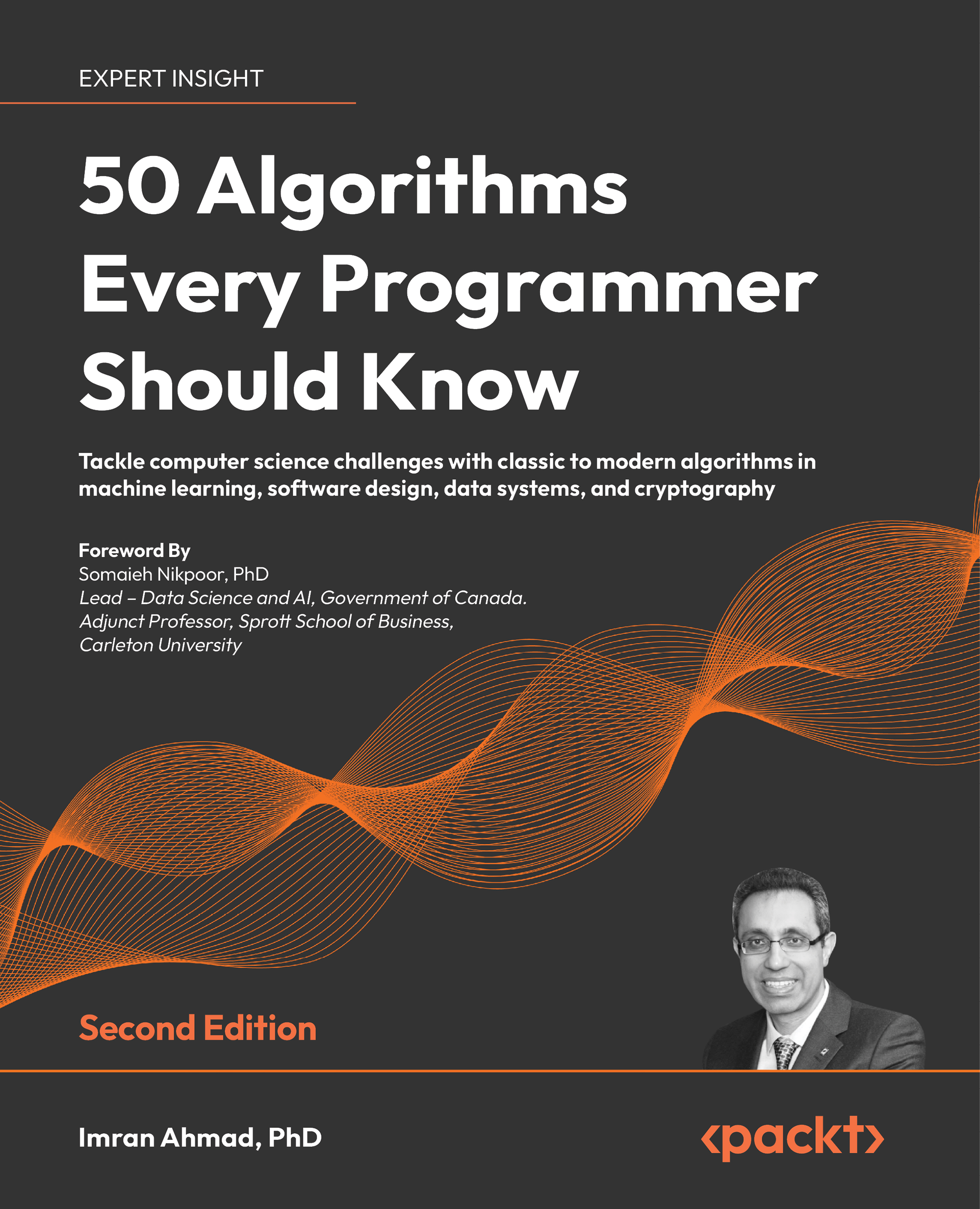-
Book Overview & Buying

-
Table Of Contents

50 Algorithms Every Programmer Should Know - Second Edition
By :

50 Algorithms Every Programmer Should Know
By:
Overview of this book
The ability to use algorithms to solve real-world problems is a must-have skill for any developer or programmer. This book will help you not only to develop the skills to select and use an algorithm to tackle problems in the real world but also to understand how it works.
You'll start with an introduction to algorithms and discover various algorithm design techniques, before exploring how to implement different types of algorithms, with the help of practical examples. As you advance, you'll learn about linear programming, page ranking, and graphs, and will then work with machine learning algorithms to understand the math and logic behind them.
Case studies will show you how to apply these algorithms optimally before you focus on deep learning algorithms and learn about different types of deep learning models along with their practical use.
You will also learn about modern sequential models and their variants, algorithms, methodologies, and architectures that are used to implement Large Language Models (LLMs) such as ChatGPT.
Finally, you'll become well versed in techniques that enable parallel processing, giving you the ability to use these algorithms for compute-intensive tasks.
By the end of this programming book, you'll have become adept at solving real-world computational problems by using a wide range of algorithms.
Table of Contents (22 chapters)
 Free Chapter
Free Chapter
Section 1: Fundamentals and Core Algorithms
Overview of Algorithms
Data Structures Used in Algorithms
Sorting and Searching Algorithms
Designing Algorithms
Graph Algorithms
Section 2: Machine Learning Algorithms
Unsupervised Machine Learning Algorithms
Traditional Supervised Learning Algorithms
Neural Network Algorithms
Algorithms for Natural Language Processing
Understanding Sequential Models
Advanced Sequential Modeling Algorithms
Section 3: Advanced Topics
Recommendation Engines
Algorithmic Strategies for Data Handling
Cryptography
Large-Scale Algorithms
Practical Considerations
Other Books You May Enjoy
Index
